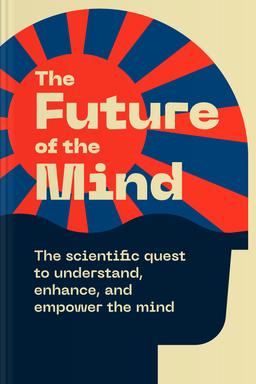What is Why We Sleep about?
This enlightening book explores the profound impact of sleep on our health, productivity, and emotional well-being. It delves into the science of sleep, revealing how insufficient rest affects our cognitive functions and long-term health. The authors discuss practical strategies to improve sleep quality and emphasize the importance of dreaming in enhancing creativity and problem-solving. Through fascinating studies, it highlights sleep as a vital component of a balanced life.
Who should read Why We Sleep
- Sleep-deprived individuals seeking better rest.
- Students looking to improve academic performance through sleep.
- Health enthusiasts interested in wellness and longevity.
What is Limitless about?
This book offers practical strategies to enhance cognitive abilities, accelerate learning, and achieve personal growth. It emphasizes the importance of mindset, focus, and memory techniques, providing actionable tips to overcome mental barriers. Readers are guided on how to optimize their brain function, unlock creativity, and enable continuous learning, ultimately transforming their lives. By harnessing the power of their minds, individuals can reach their fullest potential.
Who should read Limitless
- Lifelong learners seeking brain enhancement techniques.
- Professionals aiming to improve productivity and knowledge retention.
- Students wanting to accelerate their learning capabilities.
What is The Three Mothers about?
This compelling narrative explores the powerful influence of the mothers of three iconic figures—Martin Luther King, Jr., Malcolm X, and James Baldwin—on their development and the broader civil rights movement. By revealing their unique stories, the author highlights how these women’s resilience, values, and nurturing shaped not only their sons' legacies but also the course of a nation striving for justice and equality.
Who should read The Three Mothers
- Social justice advocates seeking historical context.
- Readers interested in civil rights leaders' backgrounds.
- Fans of biographies exploring maternal influence on history.
What is Immune about?
This enlightening exploration delves into the human immune system, revealing its complexities in a relatable way. Through engaging storytelling, the author breaks down intricate biological processes and the immune response, illustrating how our bodies fend off diseases. With a blend of science and narrative, the book encourages readers to appreciate the extraordinary defense mechanisms keeping us alive, empowering them with knowledge about health and well-being.
Who should read Immune
- Health enthusiasts seeking to understand immunity
- Students eager to learn about the immune system
- Curious readers interested in biology and science
What is The Future of the Mind about?
Exploring the frontiers of neuroscience, this book delves into the workings of the human mind, examining how emerging technologies can enhance cognitive abilities and possibly unlock the mysteries of consciousness. Kaku discusses breakthroughs in brain science, the potential for telepathy, and the implications of artificial intelligence. Combining scientific insights with future possibilities, the narrative invites readers to ponder the profound impact of understanding and manipulating our intellect.
Who should read The Future of the Mind
- Science enthusiasts curious about brain research
- Readers interested in neuroscience and consciousness
- Individuals seeking to enhance mental abilities




